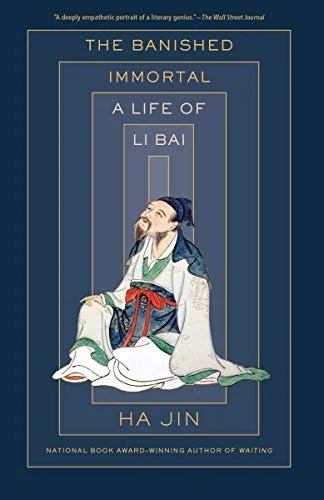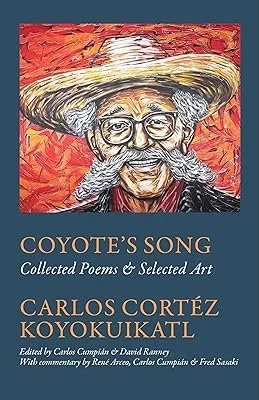The Brown Church: Five Centuries of Latino/a Social Justice, Theology, and Identity / Robert Chao Romero / 2020
I was recommended this book by one of my besties, and in general, there’s a part of me that does miss the clarity of a holy sense of purpose in the world in the religious sense, so I entered the book an eager participant, but was somewhat quickly and maybe rather unsurprisingly spat out. Romero is attempting to straddle several different audiences: ethnic studies peeps, theology peeps, homies in the pews, and other Christians at large. If you are a white Christian or a person of color assimilated into the white Christian experience looking to understand the Latino Christian experience, this is an excellent book for you. Hopefully, you’ll love it and consider it a 4 to 5/5. If you are on the dangerous path of thinking Ted Cruz makes a lot of sense, hopefully this book can pull you back into a more Christlike path. That’s because what the book does most excellently and the thing that truly makes it worthwhile is the genealogy it carves out for the Latin American/Latinx churchgoer. Romero traces the social justice legacy of the Latinx church going as far back as Bartolomé de las Casas through Sor Juana to Santo Romero and the sanctuary movement. Gathering the stories of these Latin American Christians and articulating their shared legacy and inspiring contributions is necessary work in the canon building of our history. Here, Romero does an excellent job also holding these saints to task for their missteps. He mentions De Las Casas anti-Black mistakes, for example. In a similar move, he doesn’t sugarcoat the tragedy of Sor Juana’s last years and death, where she repudiated her past feminism and died silenced and shamed into submission by the Catholic church, erased by history until her work was rediscovered in the 1950s by feminists. While Romero is invested in weaving a narrative meant to inspire not just cultural interest, but also Christian conversion, you can feel him strain against these messier moments. For me at least, these messier moments reveal so much more about the people and Christianity’s institutions. Is Sor Juana’s story an inspiring story about a woman’s bravery fighting against patriarchy in Christianity? Or is it a crushing tale about the feminist freedom that is yet to be possible and perhaps literally impossible within the Catholic church and similar structures?
If you are like me-- interested but already damaged by and thereby suspicious of religion--you will likely be disappointed. One of the most baffling and egregious missteps where Romero truly lets down all of his audiences comes from his omission of syncretism. Syncretism is “the amalgamation or attempted amalgamation of different religions, cultures, or schools of thought.” Syncretism is a crucial part of the story of Latin American Christianity-- for both Black and Native people-and Romero just doesn’t bother even mentioning it. I’m left to conjecture here, but I believe he does this 1) because he doesn’t want Latin American Christianity to seem “less” Christian than Western Christianity and 2) because he’s a bit anti-indigenous and antiblack. This misstep is gigantic because it’s just common knowledge in ethnic studies and becomes emblematic of his other missteps, such as when he fails to talk about the indigenous history behind Juan Diego and La Virgin de Guadalupe and in effect erases Chichimeca deity Tonantzin. A more honest engagement with non-Christian folk traditions and the cosmovision of Mexico Profundo (again another common knowledge text in ethnic studies) would have been so much more interesting and fruitful for understanding the so-called brown church. Romero buys into the outdated conception of mestizaje, referring to himself as la raza cosmica in the book and literally detailing his DNA results in a move that flattens identity and belonging to mere blood. Although he acknowledges the anti-Black history of the mestizaje elsewhere, Romero fails to rigorously conceptualize race throughout the project. Romero tries (in maybe two pages) to theorize a “brown” identity somehow uniting all Latinos with Natives, Arabs, Asians, presumably some Black folks, and even Eastern Europeans. The sheer arrogance and carelessness of this move is stunning. By the end of the book, the word “brown” is still rather empty of significant meaning and seems mostly there to portray a false unity between disparate people with different relationships to Christianity and their own non-whiteness. My global south peers, especially in South Asia, take issue with being asked to identify themselves against whiteness when their shades of brown aren't conspicuous where they're from. They don't think about themselves against a white backdrop the way Latinos do. Romero proclaims this book to be about “the global Brown Church” then leaves out rich Black, Pacific Islander, Middle Eastern, and Asian Christian thought. It is stunningly slipshod for a so called academic text.
While I can appreciate framing Jesus as a brown man from the hood, his constant mapping of Galilee onto LA has strong disconnected youth pastor vibes. He might as well had sat with his baseball cap backwards and talked about how Lin-Manuel Miranda is his favorite rapper. If he could keep this attempt at inclusivity consistent, I might not have faulted him on it, but he calls the Virgin Mary a single mother, something which is both factually incorrect and a slap in the face of Joseph and other adoptive parents. He uses ableist metaphors unbecoming of an ethnic studies scholar. And worst of all, he fails to ever explicitly mention LGBTQ+ communities. This last omission especially practically guarantees the failure of his project because homophobia is a major reason young people abandon religion. For me, this book was a ⅖ at best. I'm still waiting on the day for Christians to forsake the colonizer logic behind their missionary work and be more Christlike.















